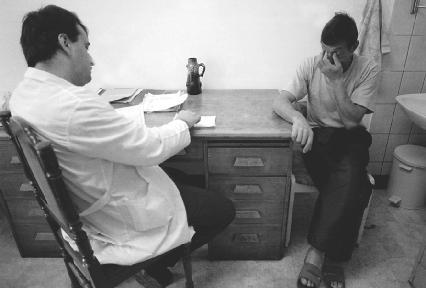Posttraumatic Stress Disorder - Diagnosis
Mental-health professionals use a number of standards to diagnose PTSD. These standards fall into three general categories: intrusive symptoms, avoidance symptoms, and arousal symptoms. Intrusive symptoms are experiences that interrupt and interfere with a person's normal life. They include:
- Flashbacks
- Sleep disorders, such as nightmares
- Intense distress when there is mention of the original event
Avoidance symptoms involve attempts by the patient to refrain from dealing with the original event. They include:
- Trying to avoid thinking or feeling anything about the trauma
- Inability to remember the event
- Loss of ability to feel and express emotions
- A sense that the past is approaching very quickly
Arousal symptoms are obvious changes in a person's mental state. They include:
- Problems falling asleep
- Sudden and extreme reactions to unexpected noises
- Memory problems
- Concentration problems
- Moodiness
- Violence
PTSD in children can also be diagnosed based on other symptoms. These include:
- Learning disabilities
- Memory or attention problems
- Increased dependency on other people
- Increased anxiety
- Self-abuse

Huseuin Gusic (right), a veteran of the Bosnian war, talking with
Dr. Avdo Sakusic (left) about war related nightmares. (Reproduced by
permission of
AP/Wide World Photos
)

Comment about this article, ask questions, or add new information about this topic: